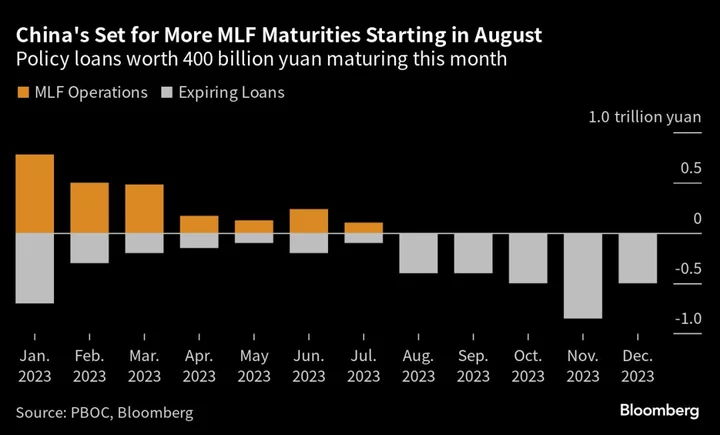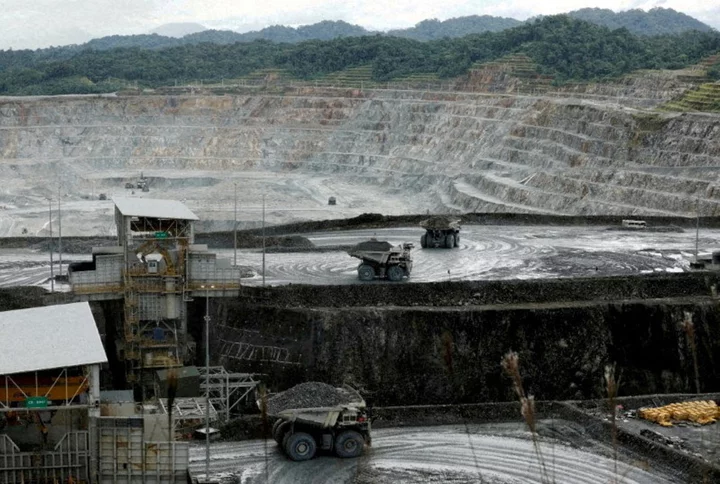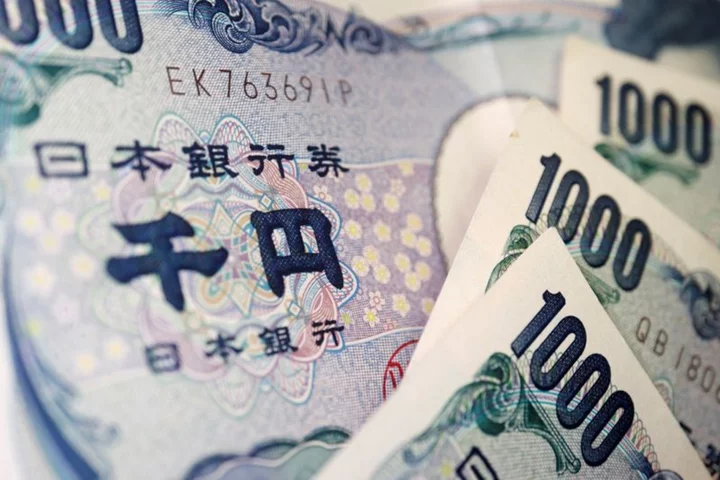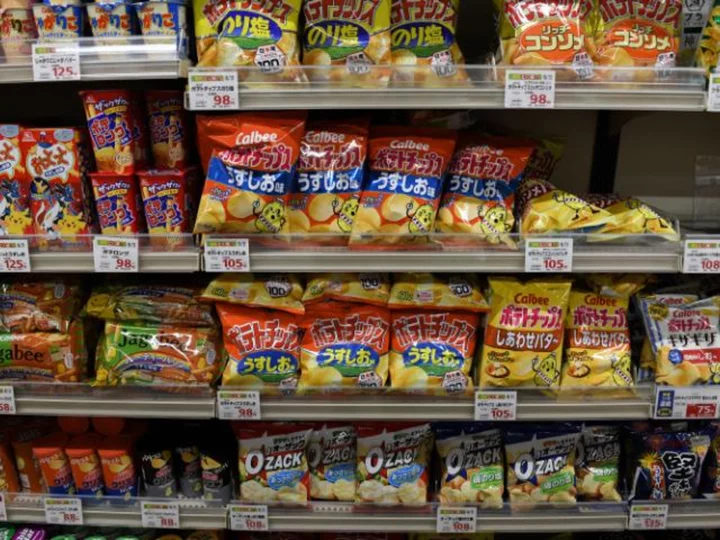China’s economic recovery is being weighed down by a worsening property slump, with latest data likely to show little sign of a rebound in growth.
Official figures due Tuesday are expected to show only moderate increases in industrial output, retail sales and fixed-assets investment. Property investment likely continued to shrink, with fears of a debt crisis at a major developer and a further contraction in housing sales holding back a rebound in the sector.
Large swathes of the country were also hit by heavy rains and deadly floods, hindering construction activity last month.
The weak data will likely put pressure on Beijing to add more monetary or fiscal stimulus after a fairly muted response from officials so far. However, economists say a weak yuan and high debt levels are holding policymakers back from taking stronger action, with stimulus this year likely to lag the steps taken during previous downturns.
That cautious approach will probably result in the People’s Bank of China keeping a key policy interest rate unchanged on Tuesday, according to economists surveyed by Bloomberg, even though deflation was evident in the economy last month. Data on Friday also showed a plunge in borrowing in July as consumers and business curb spending.
“With CPI falling to deflation, exports contracting further and property sector still struggling, we see incentive for the government to make full use of the fiscal space under the approved budget to stabilize growth,” Ding Shuang, chief economist for Greater China and North Asia at Standard Chartered Plc., wrote in a note.
China’s National Bureau of Statistics is expected to release July economic data on Tuesday at 10 a.m. local time. Here are some of the key factors to watch:
Property Crisis
Property investment likely contracted further in July, taking the decline in the first seven months of the year to 8% compared with the same period last year, according to economists surveyed by Bloomberg. That’s a worsening from the 7.9% drop in the first six months of the year.
The operating conditions for real estate developers are yet to improve. The value of new home sales by top builders fell by the most in a year in July even though more cities loosened purchase curbs. That’s dealt a blow to developers who need cash to alleviate a multiyear credit crisis.
Country Garden Holdings Co., once China’s largest private-sector developer by sales, is on course to join a slew of defaulters such as China Evergrande Group if it doesn’t make coupon payments due last week on two dollar bonds within a 30-day grace period.
“We think the pressure along the real estate value chain such as sales, land acquisition and construction may continue to weigh on economic growth,” China International Capital Corp. analysts including Zhang Wenlang wrote in a note last week.
Weak Investment
Fixed-assets investment, which includes investments in property, infrastructure and manufacturing, is projected to increase 3.8% in the January-July period, the same pace as in the first half of the year.
Infrastructure investment likely held up as local governments sold more special bonds in July than a year ago. The bonds are used mainly to finance building projects. Manufacturing investment likely picked up on the back of policy support measures and a smaller decline in profits, according to a report by UBS Group AG economists including Wang Tao.
Excavator sales figures, a barometer for construction activity, continued to plunge.
Factory Disruptions
Industrial output is expected to increase 4.3% in July from a year ago, softening slightly from a 4.4% gain in the previous month.
Recent purchasing managers’ surveys pointed to a contraction in China’s manufacturing activity in July as new orders continued to fall. Export demand remains weak, as reflected by South Korea’s figures, a bellwether for global trade, and the global manufacturing PMI, which registered a contraction in July.
What Bloomberg Economics Says...
We expect China’s July activity data to show the economy weakening further. Extreme weather likely crimped investment. The deepening housing slump probably overwhelmed the impact of a brisk summer travel season, denting consumption. Policy announcements suggest support is coming but that won’t be apparent in the July figures.
Chang Shu, chief Asia economist
For the full report, click here.
Factory production was also affected last month by deadly flooding in the country’s southwest and more recently in the northern regions, which disrupted logistics, forced people to evacuate and shut down mines. Extreme heat also threatened cotton supply, which is key for the textiles sector, and prompted some regions, which are reliant on hydro power, to curb energy supplies to high-consuming industries such as cement and steel.
Record Youth Unemployment
The jobless rate for people aged 16 to 24 hit a record of 21.3% in June, and the National Bureau of Statistics warned the figure for July is likely to be higher still. A record of nearly 12 million students are expected to graduate from colleges and universities this year, flooding the labor market.
Chinese companies are increasingly hiring job applicants with at least one year of working experience, with demand for fresh graduates declining by 72% between 2018 and 2023, according to an analysis of about 5 million job ads by data consultancy MetroDataTech.
Consumer spending likely got a boost from the start of the summer travel season in July and a pickup in in-person activities, such as movies. Hotel occupancy surged to a new high since 2020, according to a note from CICC, while box office tickets in the month topped 8 billion yuan, the highest for July on record.
Economists expect retail sales likely expanded 4.2% in July from a year ago, up from 3.1% in June. That’s still well below the 8%-plus growth rates before the pandemic.
No Rate Cuts
The PBOC is expected to keep the rate on its one-year policy loans — known as the medium-term lending facility — unchanged at 2.65%, according to the forecasts of all 12 economists polled by Bloomberg.
It’s also likely to roll over the 400 billion yuan of maturing MLF loans — the largest amount since January — and make a small net injection of 10 billion yuan into the financial system, economists forecast.
The central bank is moving cautiously on interest rates to avoid putting further pressure on an already weak yuan and fuel more capital outflows. It’s set a stronger-than-expected fixing for the yuan every day since late June to support the currency.
The PBOC has instead guided banks to lower the rate of existing mortgage loans, and hinted at an upcoming cut to the amount of cash banks must hold in reserves, a move that would give banks more liquidity to roll over maturing loans in the coming months.
Standard Chartered’s Ding expects the PBOC to lower the reserve requirement ratio as soon as this month as the authorities ramp up steps to boost the economy.
“We see balanced risks to our 2023 growth forecast at 5.4%, with positive fiscal impulse, still accommodative monetary stance and more supportive housing policies for the rest of the year offsetting external demand headwinds and sluggish home sales and investment,” he said.
--With assistance from James Mayger, Wenjin Lv, Chester Yung and Danny Lee.









